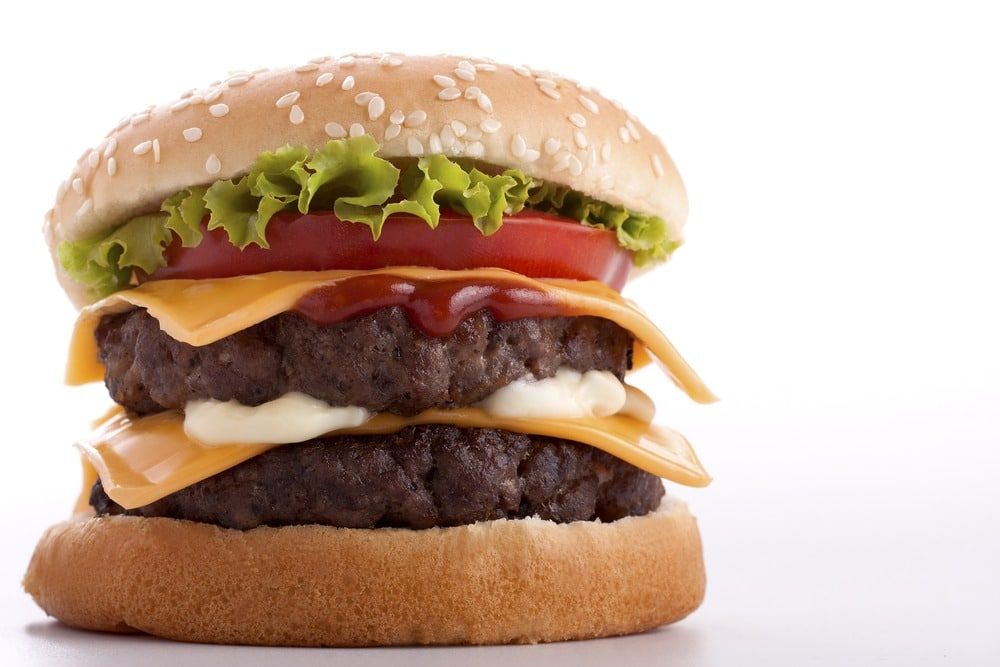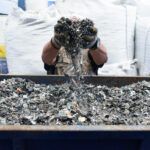That burger comes with climate change
By Elisabeth Eaves | October 25, 2017

It’s not a popular message in beef-loving America, but the facts are stark: cows are “farting our climate into oblivion,” as Popular Science Editor-in-Chief Joe Brown eloquently puts it. More specifically, livestock are responsible for 12 percent of planet-warming greenhouse gases. Red meat animals, especially the bovine kind, are among the worst offenders. Cattle raised for US consumption emit about 5.5 billion pounds of methane a year. And methane, while it doesn’t stay in the atmosphere for as long as carbon dioxide, warms it at 86 times the rate. Cows, moreover, are awfully inefficient calorie-production machines: They convert only 1 percent of all that grass they eat into energy humans can consume.
With these hard realities in mind, Brown, a confessed cheeseburger fan, launched #NoRedOctober, an effort to encourage people to abstain from red meat for one month. It may not have exactly gained movement status—the hashtag tracker Keyhole counted 93 uses of #NoRedOctober on Twitter and Instagram between October 10 and 23—but Popular Science, at least, has followed up with a series of thoughtful pieces on the effects of red meat consumption, including one pointing out that a year of meatless Mondays would have a greater impact than one meatless month. (Of course, you could do both.)
Popular Science also looked at how our appetite for red meat has fueled the rise of antimicrobial resistance. In order to breed many large and healthy animals in close quarters, farmers pump them full of antibiotics. This contributes to a situation in which common life-saving medicines—for which it is hard to create new substitutes—are becoming ever-less effective. As Bulletin columnist Laura H. Kahn wrote earlier this year, “the global rise in resistance to antibiotics is threatening the foundation of modern medicine.”
How will it end? Meat consumption remains robust in most wealthy economies and is growing rapidly in many developing countries. In the United States, beef consumption grew only 6 percent between 1990 and 2016, but it grew 597 percent over that same time period in China. If a cultural shift towards eating less meat can’t save us, perhaps a different kind of cultural shift will: Synthetic meats—lab-made proteins, grown from animal cells but no actual animal—could take their place in the human diet within the next few decades.
Publication Name: Popular Science
To read what we're reading, click here
Together, we make the world safer.
The Bulletin elevates expert voices above the noise. But as an independent nonprofit organization, our operations depend on the support of readers like you. Help us continue to deliver quality journalism that holds leaders accountable. Your support of our work at any level is important. In return, we promise our coverage will be understandable, influential, vigilant, solution-oriented, and fair-minded. Together we can make a difference.
Topics: Climate Change, What We’re Reading















